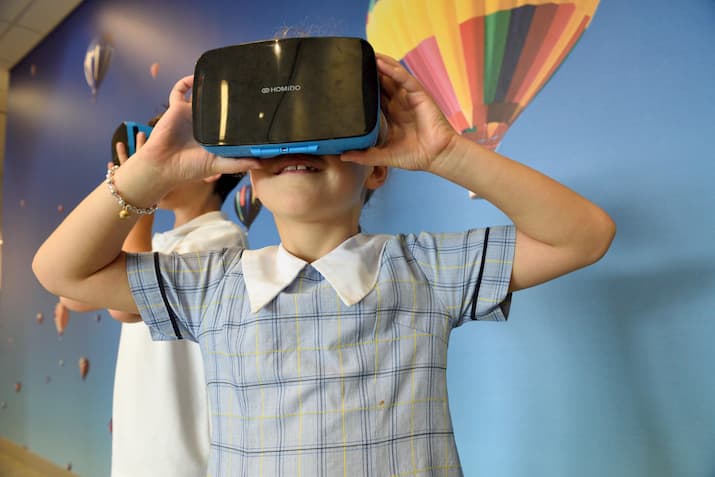What does 2020 have in store for education?
From VR to AI and online learning - here's what education will look like now that we've hit the turn of a decade.

Like many sectors, education is changing fast. Adult learners are no longer expected to attend classes in person to obtain a degree, degrees aren’t the only option for higher education, and children are learning through new and exciting technology. So, what can we expect for the next year, and decade in education? Keep reading to find out.
Micro-credentials are going to be big
In the new era of work, technology is predicted to double in capacity every 18 months. It's no wonder bite-sized learning, often called “micro-credentials” are becoming essential in remaining relevant and progressing careers.
But wait, what exactly is a micro-credential?
Micro-credentials are small units of study that allow you to hone a specific skill with just a few hours of study a week. They cover courses which offer digital badges, undergraduate single subjects, and postgraduate single subjects.
Given that many learners don’t have the time to study a full degree, micro-credentials allow students the benefits of up-skilling, without having to quit their job, or sacrifice on family time.
In fact, 95 per cent of Australian human resource managers are now reporting that they actively seek “digital badges” – items on candidates' profiles that show prospective employees that they have completed these mini-courses.
AI, VR and adaptive learning will make their debut
It won’t just be the size of study that changes. Technological advancements are revolutionising the way students learn, too. Many are predicting that technology will be used to help learners understand concepts.
Imagine studying history, and being able to transport to recreated scenes of the French Revolution to aid your understanding? We’re not too far off this reality.
Ethics will enter the classroom
Were you the type to squirm when dissecting a frog, or cow’s eye in high school? If so, you’ll be relieved to hear that taking apart the organs of animals to learn may soon become a thing of the past.
A school in Florida has started using synthetic animals for biology students to dissect – an ethical alternative to the real thing.
Syndaver is a Tampa-based company that creates human and animal models for medical simulation. And they’re changing the game for education.
The imitation frogs, supplied by Syndaver, were created using synthetic tissue that is incredibly similar to real frogs. Inside the faux frogs, students found synthetic skeletons, complete with muscles and organs. The frogs even included an imitation of the reproductive system.
Online learning will continue to make education for all possible
Gone are the days when students were expected to attend hours upon hours of lectures, face-to-face to gain their degree.
Through options such as Open Universities Australia, students can get a degree with leading Australian universities – completing their studies from the comfort of home, on the road, and even overseas.
Browse thousands of courses from leading Australian universities.
Or complete the form on this page to chat to an advisor about study options.



